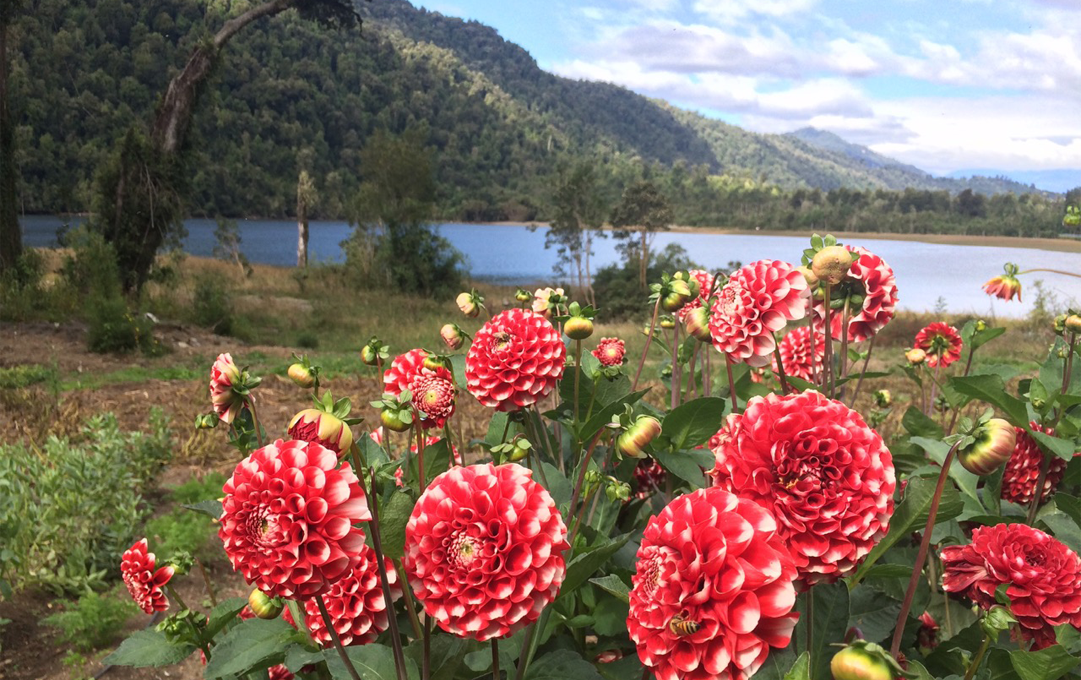
At Seward Co-op, we love being able to help local vendors and farmers distribute local honey throughout the year. While Minnesota honey is definitely sweet, there are so many different types of honey throughout the world, each one unique to the region it’s produced in.
Patagonia Bee Products is one such company working hard to bring in some of the tastiest honey out there. This small-scale business is based in Fayetteville, Arkansas. They specialize in importing honey straight from cooperative farms in the Chilean region of Patagonia. They bring us mostly Ulmo honey and a few other monofloral honeys. Monofloral means that the majority of the pollen in the flower comes from a single flower species. Ulmo is a tree located throughout the Patagonia region with the flowers blooming between February and March. Ulmo honey particularly is prized in South America for its medicinal value, having anti-bacterial properties comparable to the legendary Manuka honey. Lab tests have been shown to reduce the bacterial activity in both MRSA and E. coli.
Aside from the medicinal value, Ulmo honey has a very unique flavor, with hints of lavender and mint shining through the butter-like consistency of this 100% raw honey. You don’t get that sort of subtlety from typical clover honey. This honey is so delicious because they do a direct “Hive-to-Hand” operation. Patagonia Bee Products works directly with farmers from the Cooperativa Agricola Apicultores Del Sur in southern Chile, where each individual jar of honey is produced by a single beekeeper with the utmost concern for the bees and their environment.
There is no homogenizing in this honey at all which helps protect the delicious nutrition locked inside, including active digestive enzymes and aromatic pollen. Each batch is then tested by a third party in a laboratory to ensure the legitimacy of the pollen and that it is, in fact, monofloral honey. Most of the honey you find in a conventional supermarket has been heat-treated, destroying almost all of the nutritious enzymes, and then strained or filtered to remove any traces of pollen, and then blended with other honeys from all over the world. This means you can’t even test the pollen to determine where the honey possibly came from. What you’re usually left with is more of a honey-syrup with no nutritional value that has a flavor that barely tastes like honey at all.
Patagonia Bee Products’ commitment to the beekeepers and their community is a step above the rest, ensuring you get the rawest, most nutritious, most delicious, humanely and ethically produced honey around. Check out more about them at http://patagoniabeeproducts.com/.
Content adapted from Ozark Natural Foods Co-op original post: http://onf.coop/patagonia-bee-products/.